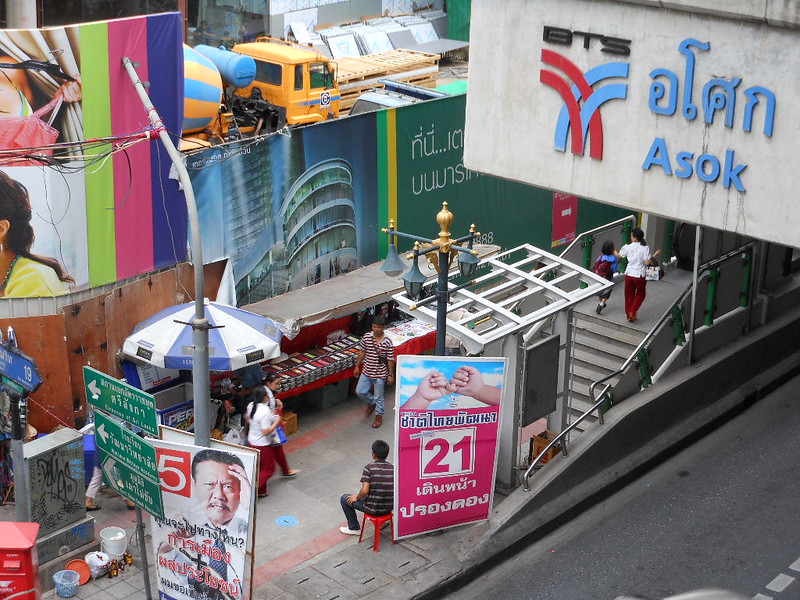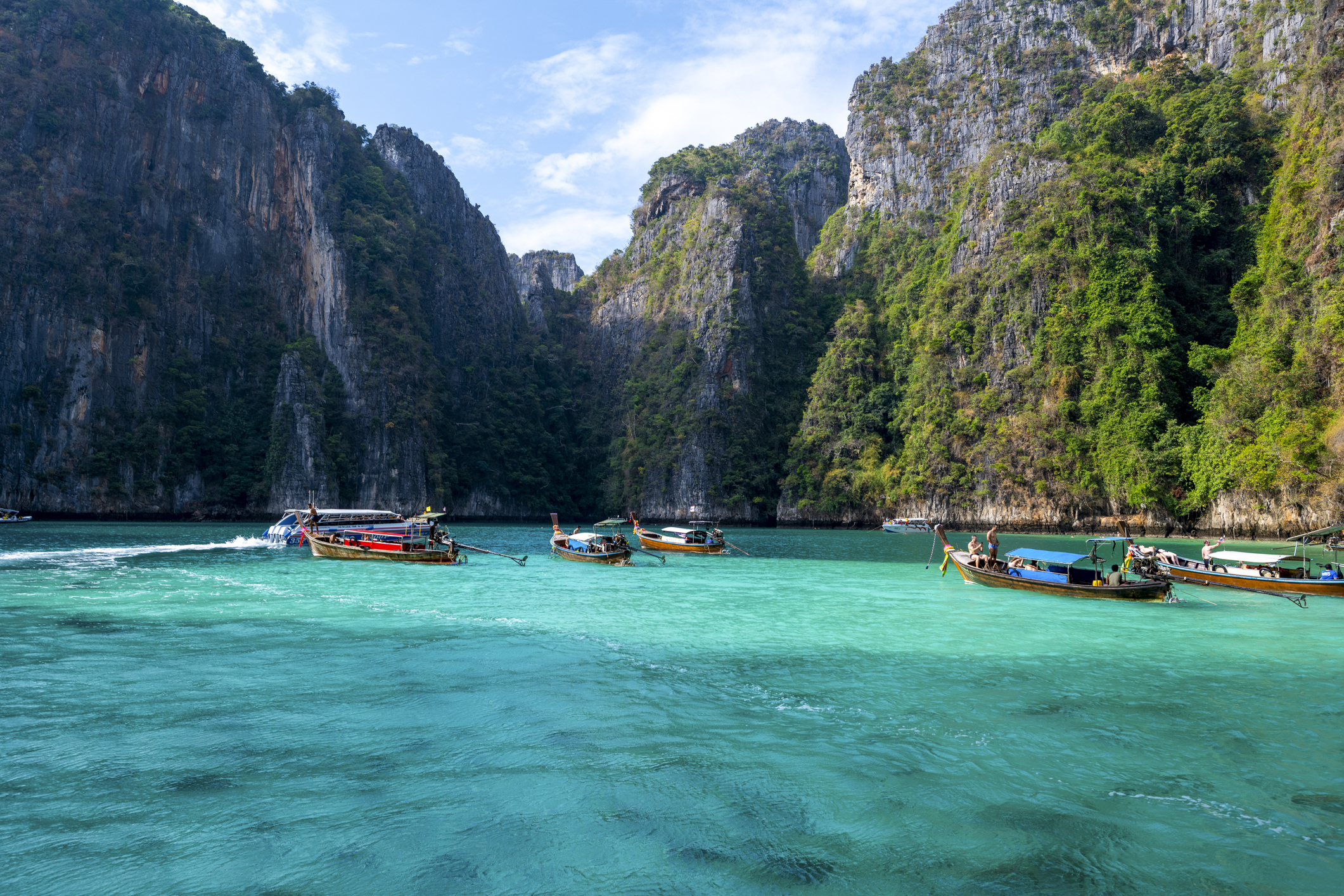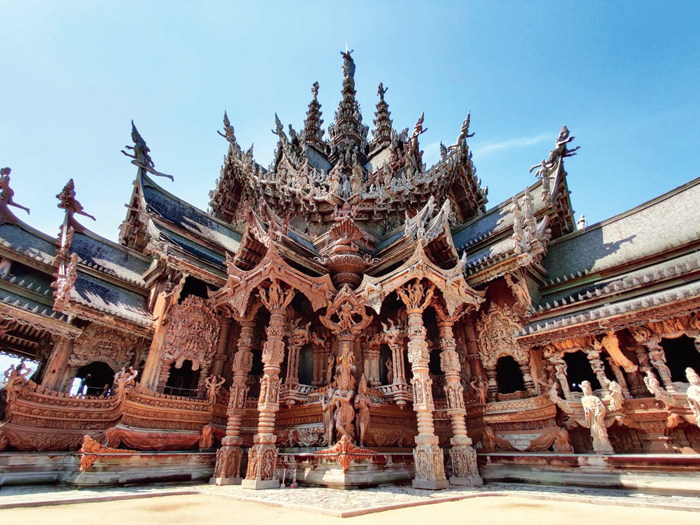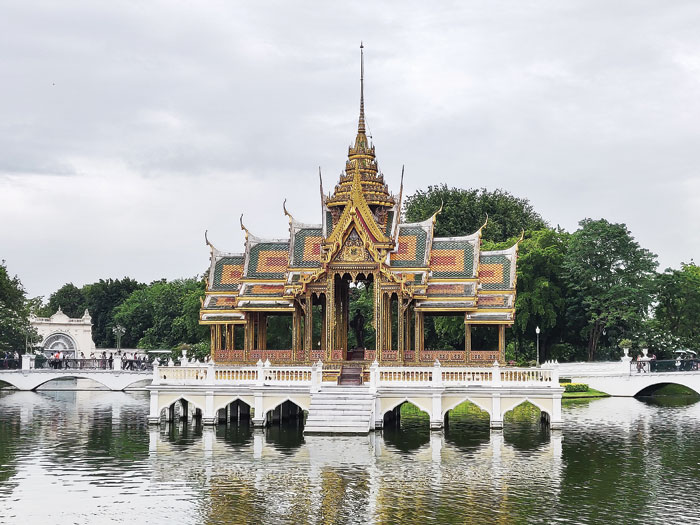The amphitheatre resounded with nationalist fervour. Bharat Mata ki… Jai! went up the cry and it was followed by Jai…Hind and Vande Mataram. Normally, I wouldn’t have batted an eyelid. But this was happening while I watched two orangutans fighting and another three playing the drums. So, when the host suddenly called out ‘Bharat mata ki…’ and the crowd cheered ‘Jai’, I was taken aback.
The location was Safari World, Bangkok’s largest zoo, and it was teeming with Indians. Since the hosts did not wish a long life to any other country, it’s safe to say Indians were there in strength.
Thailand with its beautiful beaches, cheap hotels and great nightlife is a popular destination for Indians. The number of Indian tourists heading to Thailand has doubled over the past five years. The Tourism Authority of Thailand, reckons nearly 2 million Indians visited the country in 2019 and that was a 24.85 per cent rise over the year before that.
What’s more, Indian tourists had a blast spending 86 billion baht ($2.76 billion) – that’s also double-barrelled growth of 27.45 per cent over the year before. Given our love for shopping, we also end up spending 11 per cent more per trip than other foreign nationalities. No wonder, the Thais are rolling out the red carpet for us and if that includes training a parrot to say Jai Hind, then so be it.
This was my sixth trip to Thailand in as many years. A free visa-on-arrival along with cheap and easy connectivity makes Thailand the perfect destination for a family holiday. There are nearly 300 direct flights weekly between Indian cities and popular Thai destinations such as Bangkok and Phuket, with a round-trip ticket to Bangkok from Delhi costing around Rs 15,000. Little wonder, 58 per cent of Indians visiting Thailand are repeat visitors.
Tourism makes up for 20 per cent of Thailand’s GDP and while the Chinese make up the largest numbers (at 28 per cent), Indians are playing catch up faster than expected. The number of Indian arrivals is expected to increase five-fold to 10 million by 2028, which will be 15 per cent of all tourists. China’s expected to edge up to 30 per cent in the same period.
Thailand’s also popular as a wedding destination and for MICE (meetings, incentives, conferences and exhibitions) gatherings. A study by the Bank of Thailand reckoned that nearly 300 Indians arrive in Thailand every year to get married. In tow, they bring wedding parties that exceed 200 guests and on average they spend 50,000 baht ($1,600) per person. MICE makes up 10 per cent of all Indian tourists. MICE groups are of around 800 people and are likely to visit Thailand on multiple occasions. The average spend per person per time is 76,000 baht ($2,400).
Indians are also popular as tourists because they are unlikely to cancel a trip once booked.

Asok, named after Emperor Ashok who helped spread Buddhism in Thailand nearly 2,500 years ago, is one of the busiest metro stations in Bangkok Flickr
Indian roots in Thailand
There are around 200,000 people of Indian origin living in Thailand and most are settled in Bangkok. Walk down Sukhumvit, the centre of Bangkok and you cross several Indian restaurants and also tailoring shops, mostly run by Sikhs.
Two of the city’s busiest metro stations are Asok, named after Emperor Ashok who helped spread Buddhism in Thailand nearly 2,500 years ago and Nana, named after a Gujarati Muslim who owned most of the land in that area.
Cultural and religious influences from India run deep through the veins of Thai society. Their kings are called Rama and the origins of Thailand’s Loy Krathong festival are rooted in Diwali. It’s common to see little temples at the entrance of commercial and residential buildings.
The area around Phahurat Road near Chinatown is referred to as Bangkok’s Little India. Shops selling textiles, groceries, sweets and Indian spices jostle for space in the alleyways. Most of the textile trade is run by Sikhs who settled in the area several decades back.
Indian food has always been very popular in Thailand with the eponymous Gaggan owned by chef Gaggan Anand being named Asia’s Best Restaurant for three years running. It continues to be a legend even though the restaurant closed in August as its chef decided to explore newer culinary destinations.
On this trip I also noticed Indian restaurants with their names written only in Hindi promoting pure vegetarian food. They’re certainly catering to the Indian tourists who are making a beeline for the city lights of Bangkok.
And since nationalism is the flavour of the season, it is common to see Indian flags flying outside Indian restaurants and shops. My favourite was a bar in Pattaya promoting 'mujra' with a picture of Aishwarya Rai from her film Umrao Jaan and the tricolour fluttering in the wind.













